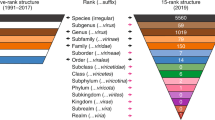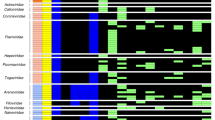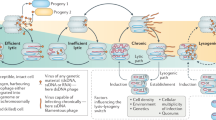Abstract
THE demonstration that a wide range of different arthropod-borne viruses could produce plaques in monolayer cultures of chick embryo cells1 raised the possibility that this technique could be used for the primary isolation of viruses in this group. This point was investigated first by the examination in London of material submitted from Uganda, and later during a visit of one of us to the Virus Research Institute, Entebbe.
This is a preview of subscription content, access via your institution
Access options
Subscribe to this journal
Receive 51 print issues and online access
$199.00 per year
only $3.90 per issue
Buy this article
- Purchase on Springer Link
- Instant access to full article PDF
Prices may be subject to local taxes which are calculated during checkout
Similar content being viewed by others
References
Porterfield, J. S., Nature, 183, 1069 (1959).
Porterfield, J. S., Bull. World Health Org. (in the press).
Williams, M. C., and Woodall, J. P. (in preparation).
Haddow, A. J., Williams, M. C., and Knight, E. M. (in preparation).
Author information
Authors and Affiliations
Rights and permissions
About this article
Cite this article
PORTERFIELD, J., WILLIAMS, M. & WOODALL, J. A Plaque Technique for the Primary Isolation of Arthropod-borne Viruses. Nature 188, 252–253 (1960). https://doi.org/10.1038/188252a0
Issue Date:
DOI: https://doi.org/10.1038/188252a0
Comments
By submitting a comment you agree to abide by our Terms and Community Guidelines. If you find something abusive or that does not comply with our terms or guidelines please flag it as inappropriate.



